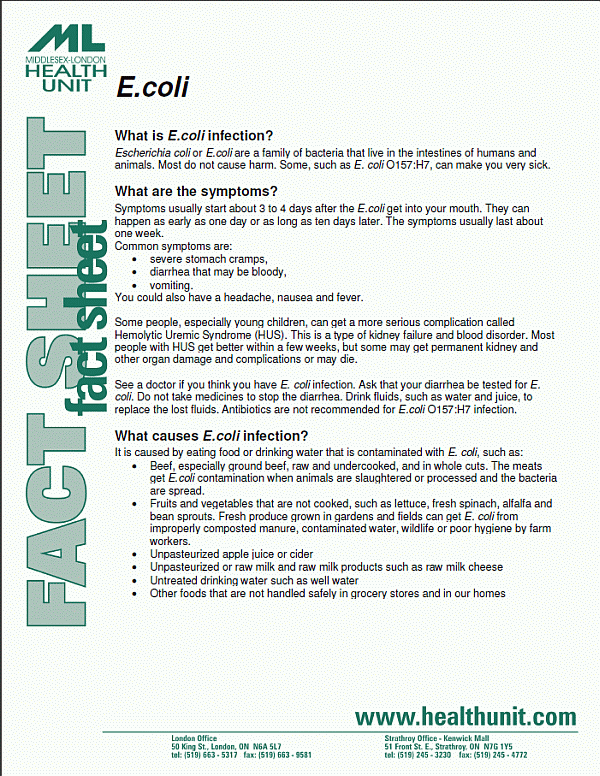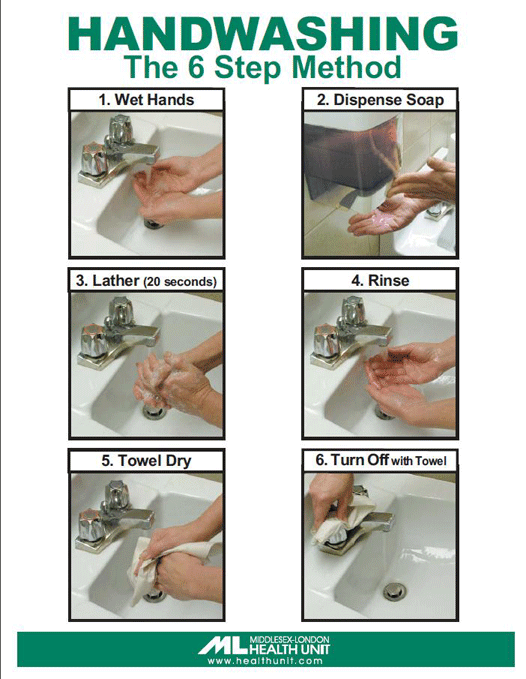Contact Us
For more information, please contact the Infectious Disease Control Team:
- 519-663-5317 Ext. 2330
 E.coli Fact Sheet (PDF 105KB)
E.coli Fact Sheet (PDF 105KB)For more information, please contact the Infectious Disease Control Team:
Symptoms usually start about 3 to 4 days after the E.coli get into your mouth. They can happen as early as one day or as long as ten days later. Common symptoms are severe stomach cramps, diarrhea that may be bloody, and vomiting. You may have a headache, nausea and fever. The symptoms usually last about one week.
Some people, especially young children, can get a more serious complication called Hemolytic Uremic Syndrome (HUS). This is a type of kidney failure and blood disorder. Most people with HUS get better within a few weeks, but some may get permanent kidney and other organ damage and complications or may die.
See a doctor if you think you have E. coli infection. Ask that your diarrhea be tested for E. coli.
Do not take medicines to stop the diarrhea. Drink fluids, such as water and juice, to replace the lost fluids. Antibiotics are not recommended for E.coli O157:H7 infection.
It is caused by eating food or drinking water that is contaminated with E. coli, such as:
E.coli infection is spread by the fecal-oral route. You could spread the infection to others if you prepare food or are being cared for by others. It is spread by:
If you are employed as a food handler or a health care worker, go home or stay home. Report your symptoms to your manager. Contact your health care provider for stool testing.
Touching animals that carry the bacteria, such as at farms and petting zoos, can pass the bacteria to our hands.
It is not spread by coughing, kissing or through normal, everyday interactions with neighbors or friends.
Safe food handling and thorough hand washing are the best prevention.
 The 6 Step Method of Handwashing (PDF 96KB)
The 6 Step Method of Handwashing (PDF 96KB)Foods that are contaminated with E.coli bacteria do not look or smell bad. Follow tips for safe food handling practices at all times. Remember to keep pets away from food storage and preparation areas.
When you visit petting zoos or other areas with wild animals and farm animals:
If you have an E. coli infection, you may be contacted by your local Public Health Department for follow-up.